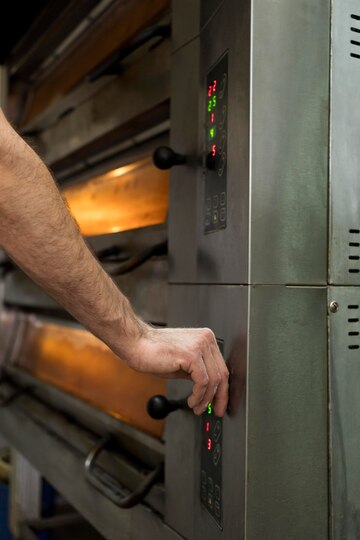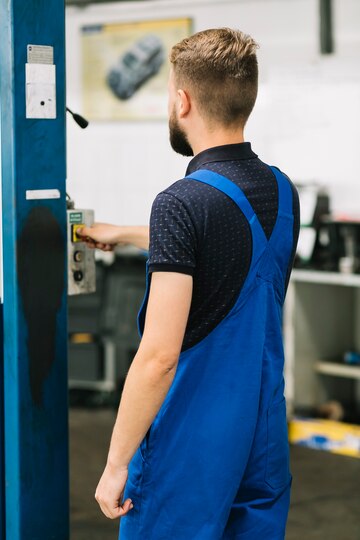Vending machines are a staple of convenience in many settings, from office buildings and schools to airports and shopping centers. They provide quick access to snacks, beverages, and other essentials, making them a valuable asset for both businesses and consumers. However, to ensure their reliability and efficiency, regular maintenance of vending machines is crucial. This blog will explore the importance of regular vending machine maintenance and provide insights into best practices for keeping these machines in top condition.
Benefits Regular Vending Machine Maintenance
Ensuring Optimal Performance
Regular maintenance of vending machines is essential for ensuring their optimal performance. Machines that are not properly maintained can experience a range of issues, from mechanical failures to software glitches. These problems can lead to downtime, resulting in lost sales and customer dissatisfaction. By performing regular maintenance, businesses can identify and address potential problems before they become major issues, ensuring that the machines operate smoothly and efficiently.

Extending the Lifespan of the Machine
Vending machines are a significant investment, and like any investment, it is important to protect it. Regular maintenance helps extend the lifespan of vending machines by preventing wear and tear from becoming more severe. Simple tasks such as cleaning the machine, checking for worn-out parts, and ensuring that all components are functioning correctly can go a long way in maintaining the machine’s longevity. This not only saves money on potential repairs or replacements but also ensures that the machine continues to generate revenue for a longer period.

Enhancing Customer Satisfaction
Customer satisfaction is a key factor in the success of any business, and vending machines are no exception. When a vending machine is out of order, it can lead to frustration and disappointment for customers who rely on it for quick access to snacks or drinks. Regular maintenance ensures that vending machines are always in working order, providing a reliable service to customers. This can lead to increased customer loyalty and positive word-of-mouth, which are invaluable for any business
Preventing Health and Safety Issues
Vending machines that are not properly maintained can pose health and safety risks. For example, machines that dispense food and beverages need to be kept clean to prevent the growth of bacteria and mold. Regular cleaning and sanitizing of the machine’s interior and exterior surfaces are essential to maintain hygiene standards. Additionally, checking the electrical components and ensuring that there are no loose wires or other hazards can prevent accidents and ensure the safety of users.
Reducing Energy Consumption
Energy efficiency is an important consideration for any business, and vending machines are no exception. Machines that are not properly maintained can consume more energy than necessary, leading to higher operating costs. Regular maintenance, such as cleaning the condenser coils and ensuring that the machine’s temperature settings are optimal, can help reduce energy consumption. This not only saves money on energy bills but also contributes to a more sustainable operation.
Maximizing Revenue
One of the primary goals of any vending machine is to generate revenue. However, this can only be achieved if the machine is functioning properly. Regular maintenance ensures that the machine is always stocked and operational, maximizing the potential for sales. Additionally, well-maintained machines are less likely to experience breakdowns, which can result in lost sales and decreased revenue. By investing in regular maintenance, businesses can ensure that their vending machines continue to be a profitable asset.


Best Practices for Vending Machine Maintenance
To achieve the benefits of regular vending machine maintenance, it is important to follow best practices. Here are some key tips:
- Regular Cleaning: Clean the machine’s exterior and interior surfaces regularly to maintain hygiene and prevent the buildup of dirt and grime. Pay special attention to areas where food and beverages are dispensed.
- Stock Rotation: Ensure that products are rotated regularly to prevent expired items from being sold. Check expiration dates and restock the machine as needed.
- Check for Wear and Tear: Regularly inspect the machine for signs of wear and tear. Replace any worn-out parts, such as belts or motors, to prevent breakdowns.
- Test the Machine: Periodically test the machine to ensure that all functions, such as payment processing and product dispensing, are working correctly. Address any issues promptly.
- Monitor Inventory Levels: Keep track of inventory levels and restock the machine before products run out. This ensures that customers always have access to a variety of items.
- Update Software: Ensure that the machine’s software is up-to-date. Software updates can address bugs and improve the machine’s functionality.
- Regular Servicing: Schedule regular servicing by a professional technician to perform thorough inspections and address any potential issues. This can help prevent major breakdowns and extend the machine’s lifespan.
Conclusion
Regular vending machine maintenance is essential for ensuring the optimal performance, longevity, and profitability of these valuable assets. By following best practices for maintenance, businesses can enhance customer satisfaction, prevent health and safety issues, reduce energy consumption, and maximize revenue. Investing in regular maintenance is a smart strategy that pays off in the long run, ensuring that vending machines continue to provide a reliable and convenient service to customers.
By prioritizing regular maintenance, businesses can ensure that their vending machines remain a reliable and profitable part of their operations, contributing to overall success and customer satisfaction.
Ready to equip your business with top-quality vending machines? SHOP VENDING MACHINES today and ensure your customers always have access to the products they need.
